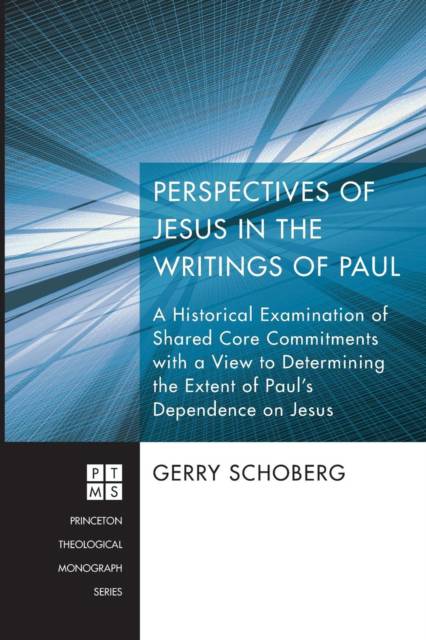
Door een staking bij bpost kan je online bestelling op dit moment iets langer onderweg zijn dan voorzien. Dringend iets nodig? Onze winkels ontvangen jou met open armen!
- Afhalen na 1 uur in een winkel met voorraad
- Gratis thuislevering in België vanaf € 30
- Ruim aanbod met 7 miljoen producten
Door een staking bij bpost kan je online bestelling op dit moment iets langer onderweg zijn dan voorzien. Dringend iets nodig? Onze winkels ontvangen jou met open armen!
- Afhalen na 1 uur in een winkel met voorraad
- Gratis thuislevering in België vanaf € 30
- Ruim aanbod met 7 miljoen producten
Zoeken
Omschrijving
Was Paul shaped by the movement that began with the teaching and activities of Jesus, or did he start something new? Attempts to answer this question one way or the other have a long history dating back to the nineteenth century. The purpose of this book is to raise the question again in light of more recent scholarly work--especially in light of historical Jesus research and the so-called New Perspective on Paul. The strategy employed is to find family resemblances between Jesus and Paul on matters that are both fundamentally important and distinctive and that can best be explained in terms of Paul's dependence on Jesus. Three aspects of Jesus' ministry--his welcome of the marginalized, his challenge to his followers that they would share his fate, and his belief that God was doing something profoundly new--are presented as the source of three corresponding aspects in Paul's thought--his welcome of Gentiles, his language of participation, and his belief in the present reality of new creation.
Specificaties
Betrokkenen
- Auteur(s):
- Uitgeverij:
Inhoud
- Aantal bladzijden:
- 498
- Taal:
- Engels
- Reeks:
- Reeksnummer:
- nr. 190
Eigenschappen
- Productcode (EAN):
- 9781620320082
- Verschijningsdatum:
- 30/04/2013
- Uitvoering:
- Paperback
- Formaat:
- Trade paperback (VS)
- Afmetingen:
- 152 mm x 226 mm
- Gewicht:
- 680 g

Alleen bij Standaard Boekhandel
+ 165 punten op je klantenkaart van Standaard Boekhandel
Beoordelingen
We publiceren alleen reviews die voldoen aan de voorwaarden voor reviews. Bekijk onze voorwaarden voor reviews.











